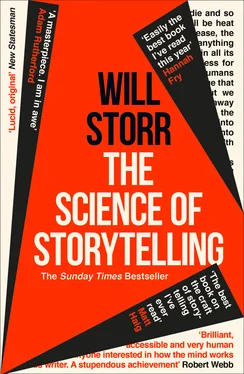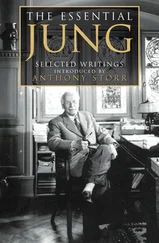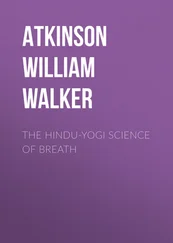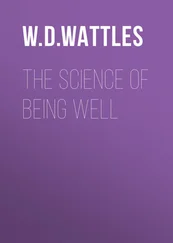THE SCIENCE OF STORYTELLING
Will Storr
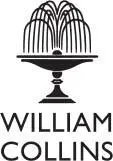
William Collins
An imprint of HarperCollins Publishers
1 London Bridge Street
London SE1 9GF
www.WilliamCollinsBooks.com
This eBook first published in Great Britain by 4th Estate in 2019
Copyright © William Storr 2019
Cover design by Jack Smyth
William Storr asserts the moral right to be identified as the author of this work
A catalogue record for this book is available from the British Library
All rights reserved under International and Pan-American Copyright Conventions. By payment of the required fees, you have been granted the non-exclusive, non-transferable right to access and read the text of this e-book on-screen. No part of this text may be reproduced, transmitted, down-loaded, decompiled, reverse engineered, or stored in or introduced into any information storage and retrieval system, in any form or by any means, whether electronic or mechanical, now known or hereinafter invented, without the express written permission of HarperCollins
Source ISBN: 9780008276935
Ebook Edition © April 2019 ISBN: 9780008276959
Version: 2020-02-18
For my firstborn, Parker
‘Ah, but a man’s reach should exceed his grasp,
Or what’s a heaven for?’
Robert Browning (1812–1889)
Contents
COVER
TITLE PAGE
COPYRIGHT
DEDICATION
EPIGRAPH
INTRODUCTION
CHAPTER ONE: CREATING A WORLD
1.0 Where does a story begin?
1.1 Moments of change; the control-seeking brain
1.2 Curiosity
1.3 The model-making brain; how we read; grammar; filmic word order; simplicity; active versus passive language; specific detail; show-not-tell
1.4 World-making in fantasy and science fiction
1.5 The domesticated brain; theory of mind in animism and religion; how theory-of-mind mistakes create drama
1.6 Salience; creating tension with detail
1.7 Neural models; poetry; metaphor
1.8 Cause and effect; literary versus mass-market storytelling
1.9 Change is not enough
CHAPTER TWO: THE FLAWED SELF
2.0 The flawed self; the theory of control
2.1 Personality and plot
2.2 Personality and setting
2.3 Personality and point of view
2.4 Culture and character; Western versus Eastern story
2.5 Anatomy of a flawed self; the ignition point
2.6 Fictional memories; moral delusions; antagonists and moral idealism; antagonists and toxic self-esteem; the hero-maker narrative
2.7 David and Goliath
2.8 How flawed characters create meaning
CHAPTER THREE: THE DRAMATIC QUESTION
3.0 Confabulation and the deluded character; the dramatic question
3.1 Multiple selves; the three-dimensional character
3.2 The two levels of story; how subconscious character struggle creates plot
3.3 Modernist stories
3.4 Wanting and needing
3.5 Dialogue
3.6 The roots of the dramatic question; social emotions; heroes and villains; moral outrage
3.7 Status play
3.8 King Lear; humiliation
3.9 Stories as tribal propaganda
3.10 Antiheroes; empathy
3.11 Origin damage
CHAPTER FOUR: PLOTS, ENDINGS AND MEANING
4.0 Goal directedness; video games; personal projects; eudaemonia; plots
4.1 Plot as recipe versus plot as symphony of change
4.2 The final battle
4.3 Endings; control; the God moment
4.4 Story as a simulacrum of consciousness; transportation
4.5 The power of story
4.6 The lesson of story
4.7 The consolation of story
4.8 The consolation of story
APPENDIX: THE SACRED FLAW APPROACH
A NOTE ON THE TEXT
NOTES AND SOURCES
INDEX
ACKNOWLEDGMENTS
ABOUT THE AUTHOR
ALSO BY WILL STORR
ABOUT THE PUBLISHER
We know how this ends. You’re going to die and so will everyone you love. And then there will be heat death. All the change in the universe will cease, the stars will die, and there’ll be nothing left of anything but infinite, dead, freezing void. Human life, in all its noise and hubris, will be rendered meaningless for eternity.
But that’s not how we live our lives. Humans might be in unique possession of the knowledge that our existence is essentially meaningless, but we carry on as if in ignorance of it. We beetle away happily, into our minutes, hours and days, with the fact of the void hovering over us. To look directly into it, and respond with an entirely rational descent into despair, is to be diagnosed with a mental-health condition, categorised as somehow faulty.
The cure for the horror is story. Our brains distract us from this terrible truth by filling our lives with hopeful goals and encouraging us to strive for them. What we want, and the ups and downs of our struggle to get it, is the story of us all. It gives our existence the illusion of meaning and turns our gaze from the dread. There’s simply no way to understand the human world without stories. They fill our newspapers, our law courts, our sporting arenas, our government debating chambers, our school playgrounds, our computer games, the lyrics to our songs, our private thoughts and public conversations and our waking and sleeping dreams. Stories are everywhere. Stories are us .
It’s story that makes us human. Recent research suggests language evolved principally to swap ‘social information’ back when we were living in Stone Age tribes. In other words, we’d gossip. We’d tell tales about the moral rights and wrongs of other people, punish the bad behaviour, reward the good, and thereby keep everyone cooperating and the tribe in check. Stories about people being heroic or villainous, and the emotions of joy and outrage they triggered, were crucial to human survival. We’re wired to enjoy them.
Some researchers believe grandparents came to perform a vital role in such tribes: elders told different kinds of stories – about ancestor heroes, exciting quests and spirits and magic – that helped children to navigate their physical, spiritual and moral worlds. It’s from these stories that complex human culture emerged. When we started farming and rearing livestock, and our tribes settled down and slowly merged into states, these grandparental campfire tales morphed into great religions that had the power to hold large numbers of humans together. Still, today, modern nations are principally defined by the stories we tell about our collective selves: our victories and defeats; our heroes and foes; our distinctive values and ways of being, all of which are encoded in the tales we tell and enjoy.
We experience our day-to-day lives in story mode. The brain creates a world for us to live in and populates it with allies and villains. It turns the chaos and bleakness of reality into a simple, hopeful tale, and at the centre it places its star – wonderful, precious me – who it sets on a series of goals that become the plots of our lives. Story is what brain does. It is a ‘story processor’, writes the psychologist Professor Jonathan Haidt, ‘not a logic processor’. Story emerges from human minds as naturally as breath emerges from between human lips. You don’t have to be a genius to master it. You’re already doing it. Becoming better at telling stories is simply a matter of peering inwards, at the mind itself, and asking how it does it.
Читать дальше
